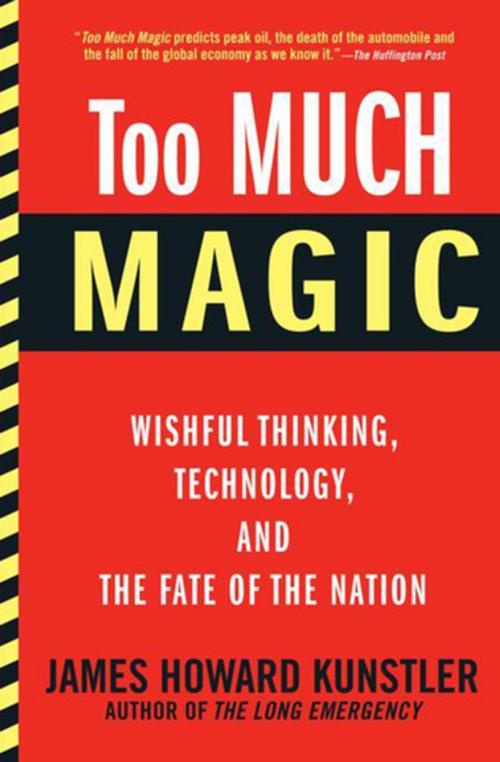Too Much Magic
Wishful Thinking, Technology, and the Fate of the Nation
Nonfiction, Social & Cultural Studies, Political Science, Government, Public Policy, Social Science| Author: | James Howard Kunstler | ISBN: | 9780802194381 |
| Publisher: | Grove Atlantic | Publication: | June 19, 2012 |
| Imprint: | Atlantic Monthly Press | Language: | English |
| Author: | James Howard Kunstler |
| ISBN: | 9780802194381 |
| Publisher: | Grove Atlantic |
| Publication: | June 19, 2012 |
| Imprint: | Atlantic Monthly Press |
| Language: | English |
The author of The Long Emergency explains why technology can’t solve all our problems, and how excessive optimism can endanger our future.**
The Long Emergency quickly became a grassroots hit, offering a shocking vision of our post-oil future and capturing the attention of environmentalists and business leaders alike. As discussion about our dependence on fossil fuels and our dysfunctional financial and government institutions continues, the author returns with Too Much Magic—evaluating what has changed and what has not, and what direction we need to take in this post-financial-crisis world.
“Too much magic” is what James Howard Kunstler sees in the bright utopian visions of the future dreamed up by optimistic souls who believe technology will solve all our problems. Their visions remind him of the flying cars and robot maids that were the dominant images of the future in the 1950s. Kunstler’s image of the future is much more sober. With vision, clarity of thought, and a pragmatic worldview, Kunstler argues that the time for magical thinking and hoping for miracles is over—and the time to begin preparing for the long emergency has begun.
“A sharp critic of energy-sucking, big-box landscapes.” —Winnipeg Free Press
The author of The Long Emergency explains why technology can’t solve all our problems, and how excessive optimism can endanger our future.**
The Long Emergency quickly became a grassroots hit, offering a shocking vision of our post-oil future and capturing the attention of environmentalists and business leaders alike. As discussion about our dependence on fossil fuels and our dysfunctional financial and government institutions continues, the author returns with Too Much Magic—evaluating what has changed and what has not, and what direction we need to take in this post-financial-crisis world.
“Too much magic” is what James Howard Kunstler sees in the bright utopian visions of the future dreamed up by optimistic souls who believe technology will solve all our problems. Their visions remind him of the flying cars and robot maids that were the dominant images of the future in the 1950s. Kunstler’s image of the future is much more sober. With vision, clarity of thought, and a pragmatic worldview, Kunstler argues that the time for magical thinking and hoping for miracles is over—and the time to begin preparing for the long emergency has begun.
“A sharp critic of energy-sucking, big-box landscapes.” —Winnipeg Free Press















